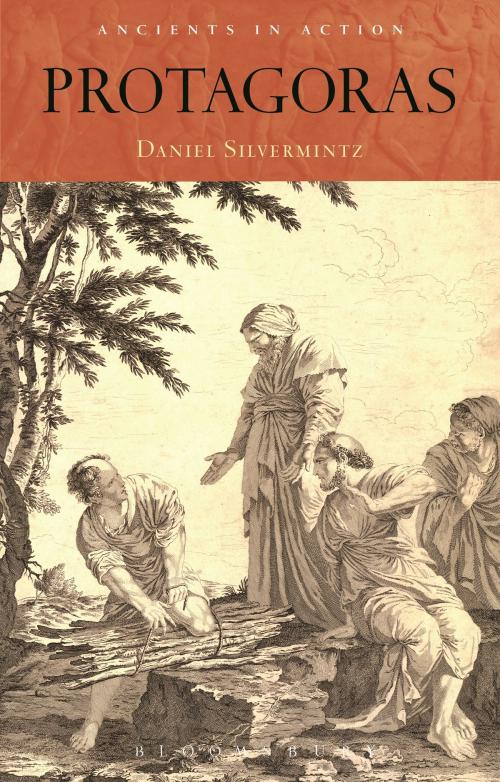| Author: | Daniel Silvermintz | ISBN: | 9781472512628 |
| Publisher: | Bloomsbury Publishing | Publication: | December 17, 2015 |
| Imprint: | Bloomsbury Academic | Language: | English |
| Author: | Daniel Silvermintz |
| ISBN: | 9781472512628 |
| Publisher: | Bloomsbury Publishing |
| Publication: | December 17, 2015 |
| Imprint: | Bloomsbury Academic |
| Language: | English |
The presocratic philosopher Protagoras of Abdera (490–420 BC), founder of the sophistic movement, was famously agnostic towards the existence and nature of the gods, and was the proponent of the doctrine that 'man is the measure of all things'. Still relevant to contemporary society, Protagoras is in many ways a precursor of the postmodern movement. In the brief fragments that survive, he lays the foundation for relativism, agnosticism, the significance of rhetoric, a pedagogy for critical thinking and a conception of the human being as a social construction.
This accessible introductory survey by Daniel Silvermintz covers Protagoras' life, ideas and lasting legacy. Each chapter interprets one of the surviving fragments and draws connections with related ideas forwarded by other sophists, showing its relevance to an area of knowledge: epistemology, ethics, education and sociology.
The presocratic philosopher Protagoras of Abdera (490–420 BC), founder of the sophistic movement, was famously agnostic towards the existence and nature of the gods, and was the proponent of the doctrine that 'man is the measure of all things'. Still relevant to contemporary society, Protagoras is in many ways a precursor of the postmodern movement. In the brief fragments that survive, he lays the foundation for relativism, agnosticism, the significance of rhetoric, a pedagogy for critical thinking and a conception of the human being as a social construction.
This accessible introductory survey by Daniel Silvermintz covers Protagoras' life, ideas and lasting legacy. Each chapter interprets one of the surviving fragments and draws connections with related ideas forwarded by other sophists, showing its relevance to an area of knowledge: epistemology, ethics, education and sociology.















